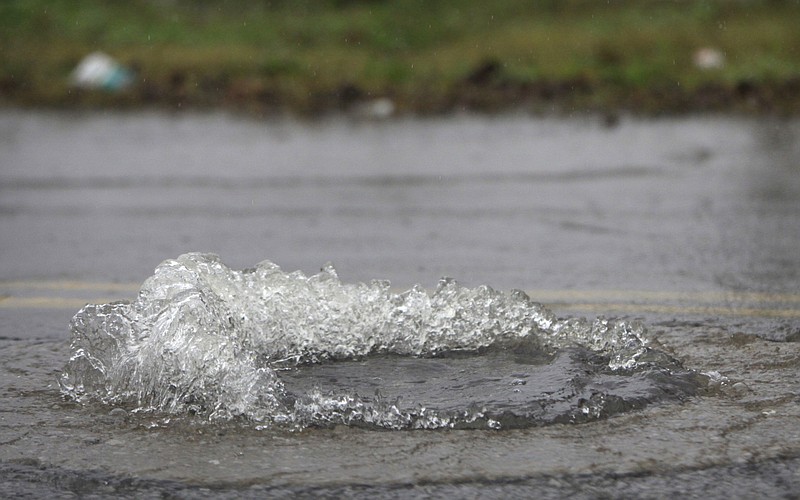Less than three years after adopting some of the strictest regulations for stormwater runoff in Tennessee, the city of Chattanooga is preparing to relax those rules to limit some of the costs and barriers to development in part of the city.
The Chattanooga Stormwater Regulations Board is scheduled to vote Friday on proposed changes that would lower the amount of rainwater any new development in the South Chickamauga Creek watershed must retain and ease some of the definitions for when a property must retain water in residential areas. The changes are projected to limit the amount of runoff that some new residential building lots must retain or treat by up to 73 percent.
Chattanooga is one of the only municipalities in Tennessee that has a standard above the statewide mandate of the first inch of rain to be retained on the site. Lowering the retention requirement from the current 1.6 inches of rain required in the South Chickamauga Creek watershed would still retain all of the runoff from 85 percent of all storms, City Engineer Bill Payne said Monday during a public hearing on the rule changes.
"This does not in any way lessen our meeting the state requirements," Payne told the advisory stormwater board Monday.
What’s next?
The stormwater regulations board is scheduled to vote at 2:30 p.m., Friday when the advisory board meets in the first floor of the Chattanooga Development Resource Center, 1250 Market Street. Any change in the city stormwater rules must then be approved by the Chattanooga City Council.
Payne acknowledged that not all of his staff agreed with all of the relaxed standards and reducing the rainwater retention requirements for building may require the city to do more storm remediation to address ongoing problems with the South Chickamauga Creek. But he said the city "has worked very hard" over the past nine months with developers and home builders to address their concerns while still complying with the state's stormwater permit requirements.
Environmental and taxpayer groups, along with some residents in the watershed, questioned whether the city has been too favorable to home builders.
Sandy Kurtz, chair of the South Chickamauga Creek Greenway Alliance, said the alliance helped draft the city's original stormwater rules, which became effective in December 2014.
"We had a seat at the table when these rules were developed and we figured as a group that has sought to protect this stream since 1994 we had some standing (for the drafting of any changes)," Kurtz told the city stormwater board. "Now we find out there have been meetings between the home builders association with the city and the state which we had no knowledge of or input into."
Franklin McCallie, a retired educator and citizen activist, urged the city to retain the higher 1.6-inch rainwater runoff standard to protect the environment and prevent the city from having to make costly flood cleanups or stream remediation.
The South Chickamauga Creek is home to at least two endangered species and the creek is on the list of the state's impaired streams even though it is a source of Chattanooga's drinking water.
"I don't think we ought to drop a good standard for the benefit of some developers," McCallie said.
But Terry Greene, executive director for the Home Builders Association of Greater Chattanooga, said lowering the stay-on-volume requirement to rainwater retention "provides needed stormwater protection with no harm to the environment."
"Our members are concerned that some of the requirements of existing ordinance are more stringent than (the state standards require) and are actually impacting the ability of Chattanooga to grow to meet its existing housing needs," Greene said.
The National Home Builders Association estimates that government regulations in Chattanooga add 25 percent to the cost of houses built in the city and for every extra $1,000 of home building costs, another 467 prospective home buyers are priced out of affording a new home.
Such persons either don't buy a new home or move outside the city, Greene said.
Two thirds of the 435-square-mile watershed of the impaired South Chickamauga Creek watershed is outside of the city and its runoff is not subject to Chattanooga regulations.
Regardless of where the water comes from, homeowner Gary Satin said the city needs to do more to prevent flooding in the area. Satin, an East Brainerd homeowner, said his property has flooded five times since he moved to his home a year ago and he worries relaxing stormwater runoff standards will only worsen the problem.
"I was thinking about buying some kayaks and renting them out for whitewater rafting," he quipped.
Contact Dave Flessner at dflessner@timesfreepress.com or at 423-757-6340.
